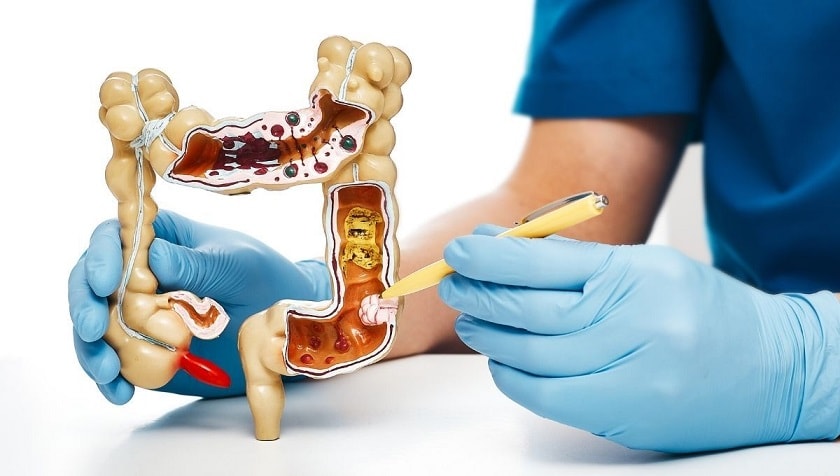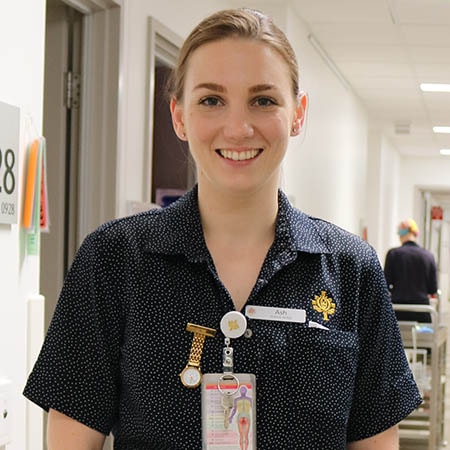What is bowel cancer?
Bowel cancer, also known as colorectal cancer, is cancer that can affect any part of the colon (the large bowel) or the rectum (the last bit of the bowel).
It is predicted that in 2018 there will be 17,000 new cases diagnosed in Australia.
What this means is that if you live long enough to celebrate your 85th birthday the chance of being diagnosed with bowel cancer during your lifetime is one in 11 for men and one in 15 for women.
Bowel cancer is treatable but often doesn’t cause symptoms until it's more advanced which is why screening (being tested when you feel well, before you get any symptoms) is important.
What is bowel cancer screening?
Screening is useful for bowel cancers because bowel cancers usually start from a polyp (which is benign) that grows over time and can sometimes turn into cancer if left long enough.
Taking into account all stages of bowel cancer currently 70 per cent of people are alive five years after a diagnosis of bowel cancer.
People diagnosed at earlier stages (when the cancer is smaller and hasn’t spread as far) do better than those diagnosed at later stages.
This is another reason why screening is important to try and pick cancer up at an earlier stage.
In addition to screening it is also important that you see your GP if you have symptoms that you are worried about.
What symptoms does bowel cancer cause?
People with bowel cancer can get many different symptoms:
- rectal bleeding and altered bowels habits, especially when occurring together should prompt further evaluation
- pain in the abdomen and loss of weight are potential symptoms but could also be caused by many other conditions
- some people with bowel cancer present with fatigue due to anaemia and iron deficiency due to undetected blood loss.
It's important to talk to your GP if you’ve noticed something out of the usual for you or you have concerns.
How do I get screened?
If you’re between the ages of 50 and 74 the National Bowel Cancer Screening Program will mail you a kit to complete at home.
This program is being increased over the next couple of years so that people will be invited to have screening done every two years.
This test requires a stool sample which is then tested to see if there is any evidence of low grade bleeding in the sample.
If blood is detected then a colonoscopy is required to look at the bowel.
Only about five per cent of people with a positive screening test have bowel cancer but about half will have a polyp detected while the rest usually have a non-cancerous condition (e.g. haemorrhoids) detected.
Doctors outside this program can also order this test if they think it is relevant to your care.
Some people are at an increased risk of bowel cancer compared with the rest of the population which may be due to a strong family history of bowel cancer or a personal history of a condition associated with an increased risk of bowel cancer (e.g. inflammatory bowel disease).
If this is the case a colonoscopy or another screening test may be recommended starting at a younger age and your GP or treating specialist will advise you.
How is it treated?
For most people with bowel cancer surgery is the single most important step in treatment and achieving a cure.
Other techniques to increase the chance of cure include radiation and chemotherapy (sometimes given in combination) and may be recommended depending on the stage and location of the cancer.
Radiation is often used in cancers of the rectum while chemotherapy is often recommended in cancers that have spread from the bowel to lymph nodes.
Some cancers don’t require radiation or chemotherapy and are treated by surgery alone.
Your surgeon will guide you through whether this will be an open procedure, assisted with laparoscopy (“keyhole”) and whether or not a stoma is required.
Bowel cancer is treated by a team of medical and allied health specialists and people diagnosed with bowel cancer can expect to meet a number of different professionals to help look after them and guide them through different aspects of their care.








